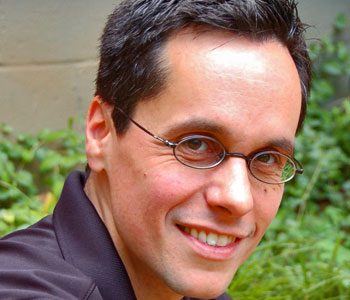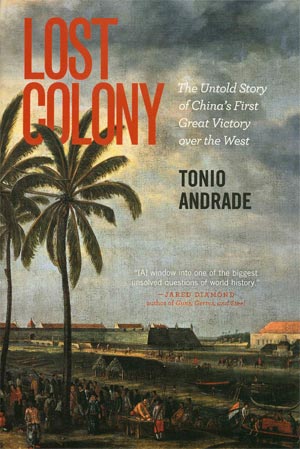
In 1997, Jared Diamond published his wonderful book, Guns, Germs, and Steel, which asked why it was that some societies become rich and powerful and others don’t.
His explanation was geographical—it depended on where those societies were located and what ecological resources they had available to them. Eurasians (that is the people of Europe and Asia) were unusually blessed just because of where they lived, and so they developed techniques and technologies that enabled them to expand around the world.
It’s a great book, but it leaves open an important question: why did Europeans rather than other Eurasians become so powerful on the world stage in modern times—i.e., after around 1500? After all, Asians—most notably the Chinese—had been world leaders in science and technology for centuries. What accounted for the sudden leap in European power vis-à-vis Asia in recent centuries?
Historians and sociologists have been vehemently debating this question, but with little progress.
It seemed to me that one way to help answer it was to look at warfare between Europeans and Chinese. So I did. And the war that I describe in this book is a fascinating and exciting one.
It really is an “untold story”—the first ever major conflict between western European and Chinese forces, and the last one until the famous Opium War of the 1800s.
The Chinese lost the Opium War. They won the Sino-Dutch War. Why? How? Technology, weather, and leadership.
Forget technology and weather for now. I want to spend some of my few allotted words talking about something else: China’s much neglected military tradition.
Western scholars—like the famous Victor Davis Hanson—argue that there was a “Western Way of War” that was superior to other military traditions. It’s not that westerners were braver than other peoples. They were just better at working together to fight. They coordinated their movements en masse and that gave them an advantage on the battlefield. When westerners developed powerful handguns in the 1500s and 1600s, they learned to train their armies to march in lockstep to the beat of drummers, firing and reloading in succession, creating disciplined armies coordinated like clockwork. That “revolution in drill” is said to have been a prime reason for Europeans’ power abroad.
But what I found in the rich sources I consulted—both Chinese and European sources—completely contradicted this idea.
The Chinese troops in the Sino-Dutch War were incredibly disciplined. They worked much better together than did their Dutch foes—and the Dutch were the ones who invented modern European drill.
The main character of Lost Colony, the brilliant Chinese warlord Koxinga, obsessively drilled his troops, training them to march in lockstep to drums and horns and gongs. When they met Dutch troops in battle, it was the Dutch who scattered and ran and the Chinese who moved calmly forward.
In fact, the more I learned about China’s military tradition the more fascinated I got. There were illustrated drilling manuals published by Chinese generals that are strikingly similar to manuals published at the same time in Europe.
Those European manuals have been regarded as exceptional, a sign of the rapid advancement in the art of war in Europe. But the surge of Chinese publishing on war was stunning, and most military historians know nothing about it.
Equally fascinating to me was the deep tradition of military thought that guided Koxinga and his generals. These precepts about war espouse a military philosophy that is quite different from the western one, and in this war at least it proved superior. Since that military philosophy still guides today’s Chinese military leaders, it’s worth looking into.
The book begins with an execution. Frederik Coyet, the leader of the Dutch colony that Koxinga captured, has been blamed for the lost colony, even though it wasn’t his fault. His reflections (he survives his execution day) set up the main questions of the book.
Coyet is a proud and cantankerous man, just one of a number of fascinating characters in the book, such as a whiny Dutch admiral with a speech defect, a foolhardy Chinese farmer, a couple of enterprising African boys, and a whole cast of pirates, rogues, and hustlers, including Koxinga’s father, a good looking but rather impoverished young man who made himself into the most powerful pirate in the world, far more impressive than the measly Caribbean buccaneers we hear so much about. The most fascinating character is Koxinga himself: proud, charismatic, stern, and unstable. He tended to get mad and chop off heads. He died in a fit of insanity.
All of these characters are drawn right from the historical sources. In fact, the sources I had available—sources that few historians have ever used—were remarkably rich. I tried to draw out from them the revealing personal details so that the book would be fun to read.
My goal was to talk about big issues in history through vivid narrative, and I hope that the book is read by people who might not ordinarily think of dipping into the 17th century.
Historians have learned so much about world history in the past three decades, but their findings are largely unknown to the public at large. I hope this exciting story of a three-hundred-and-fifty-year old war will introduce readers to cutting edge research into some of the biggest questions in world history. I hope they’ll finish the book ready to read more world history, because there are many more books out there!


Tonio Andrade grew up in Salt Lake City, Utah, and has degrees from Reed College and Yale University. He is associate professor of history at Emory University, where he writes on global history and the history of China. Lost Colony is his second book. His first is called How Taiwan Became Chinese (2007). Andrade has also published articles in The Journal of World History, Late Imperial China, International Journal of Maritime History, The Canadian Journal of Sociology, Itinerario, and The Journal of Asian Studies. He lives in Decatur, Georgia, with his wife, Andrea, and his three daughters, Amalia, Sylvia, and Josephine.